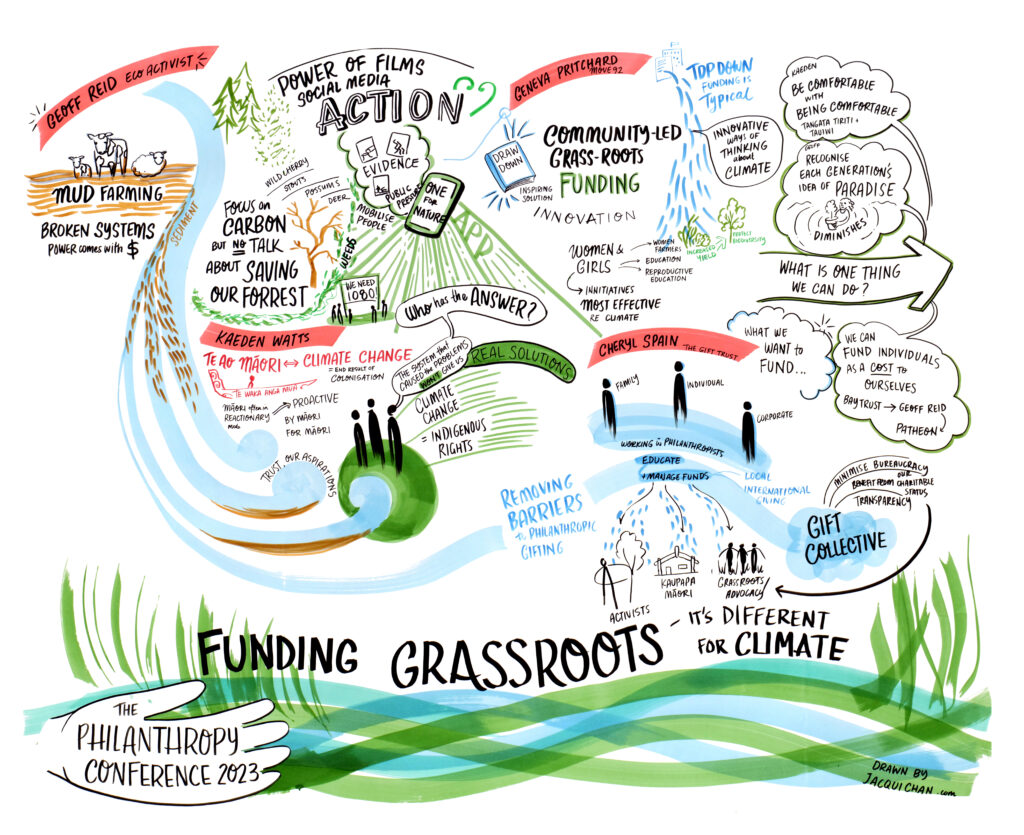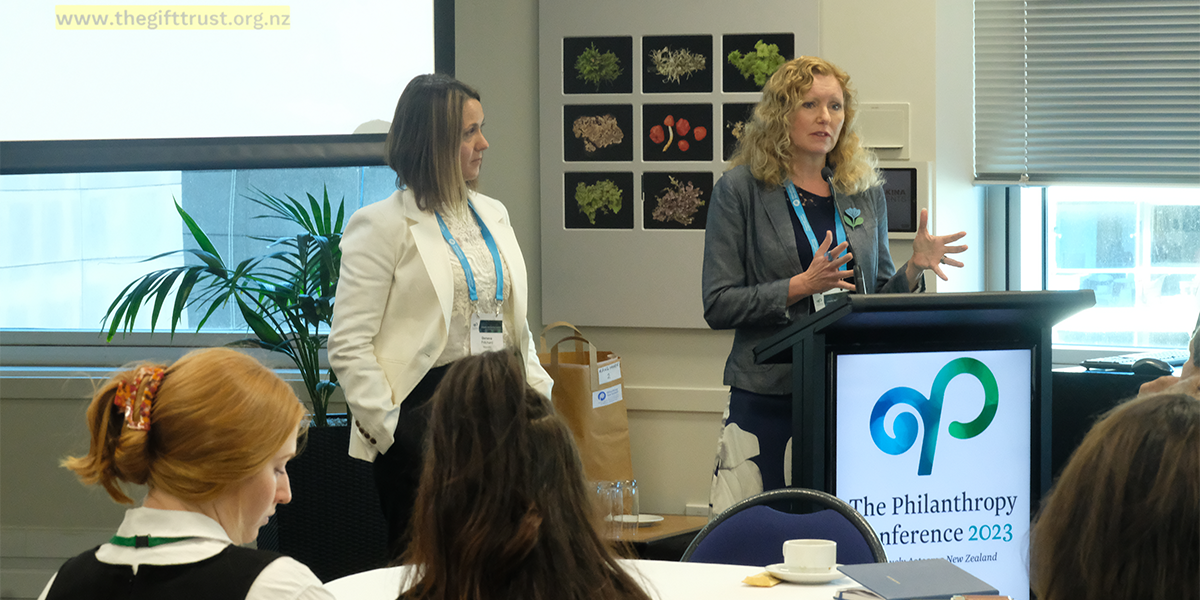The Gift Trust and Move92 teams were part of the panel for the session on funding grassroots initiatives and why it’s different for climate.
Funders are looking for creative and new ways to fund grassroots groups making a positive difference for the climate. Some steps on how and where to get started follow.
Over the past 20–30 years, discussion and funding around the climate crisis has mainly focused on shifting national policies, partnering with government and large aid organisations, and prioritising scale. However, there is new evidence that suggests funding grassroots solutions has potential for greater and more rapid results. Philanthropy can play an important and impactful role at the grassroots with unrestricted funding that supports innovation, and fewer bureaucratic systems allowing for agile and real-time decisions.

We have a few recommendations for a more grassroots-centred way of giving:
- First look internally at your systems. Where can you adopt more trust-based philanthropy methods such as multi-year funding, unrestricted funding and less burdensome application and reporting requirements? If you have restrictive criteria that doesn’t allow grassroots groups to access funding (for example, requiring registered charity status), look for creative solutions like allowing groups to sit under a fundholding service like Gift Collective. Philanthropic funding has an advantage being untethered from the bureaucracy of large government or aid organisations – this can be critical for the fast-moving needs of the climate crisis.
- Get guidance on how to make the shift to a trust-based approach to climate funding. The climate crisis is complex and sometimes it is hard to know where to even begin. Many foundations are exploring this new way of giving and roadmaps are available to help get you started.
- Connect with existing networks that know grassroots organisations locally and globally and who can help you find organisations suited to your geographic and thematic interests.
The climate crisis highlights the interconnectedness of our world. We are seeing an increase in record heatwaves, intense drought, massive wildfires and supercharged storms and we can expect an increase in these extreme weather events. No country on Earth is immune to the effects of the climate crisis, and it will take collective action to begin reversing the impacts of global warming.
As funders, we have an important role to play in empowering, educating and increasing funding within the communities most affected by climate change – both here in New Zealand and globally. Rather than be daunted by the overwhelming messaging of the climate crisis, let’s work together with the mindset that is highlighted in the inspiring book Drawdown – that it is game on, not game over.
This article originally ran in the November 2023 issue of Philanthropy News – our thanks to Philanthropy New Zealand for letting us share it.

